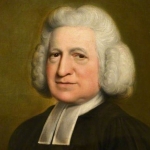My book is largely growing;
Its leaves are multiplied;
Its pages are much longer,
And nearly twice as wide.
At first I thought the reader
Had not the time to spare,
To hail my little volume
As it floated in the air.
I thought perhaps while floating
Away through empty space,
Perchance would there discover
Some long forgotten race.
I knew not it would mingle
Among the great and wise,
Or that it would be subject
Unto the critic’s eyes.
I thought it was inferior,
And of the minor class,
I knew not how the ladies
Would read it as they pass.
But now I find it’s useful,
And laden every page,
For truly it must mingle
With those of every age.
Therefore I should have measured;
Should not have thought it vain
To make its little mysteries
Unto the reader plain.
But surely there’s no secret
Where thought is not sublime,
That I have thus destroyed
By keeping up my rhyme.
But if I should in future
Find this to be the case,
I’d take my silver pencil
And all these lines erase.
I’d rather use a license,
Or grammar’s laws dispense,
Than for to let my metre
Or rhythm govern sense.
The read will remember
My chances are but slim,
Or else this little volume
Would be in better trim.
Remember, too, in Dixie
That I was born a slave.
And all my early genius
Was locked within the grave.
Remember my condition—
A mark within my eyes—
And all my inspirations
Are showered from the skies.
I cannot read of authors,
Nor those of noble fame,
For I’m just a learning
The author, Milton’s, name.
I cannot borrow subjects,
Nor rob them of their style,
My book amid their volumes,
Like me, is but a child.
Therefore, I bless this volume,
And send with it my heart,
That it may to the critic
My better thoughts impart.
Go forth, then, little volume,
Much good from thee may spring,
If thou continueth pleading
The merits of thy King.
And others yet may follow,
All changed within their scale,
But thou, upon thy mission,
I am sure can never fail.





















Comment form: